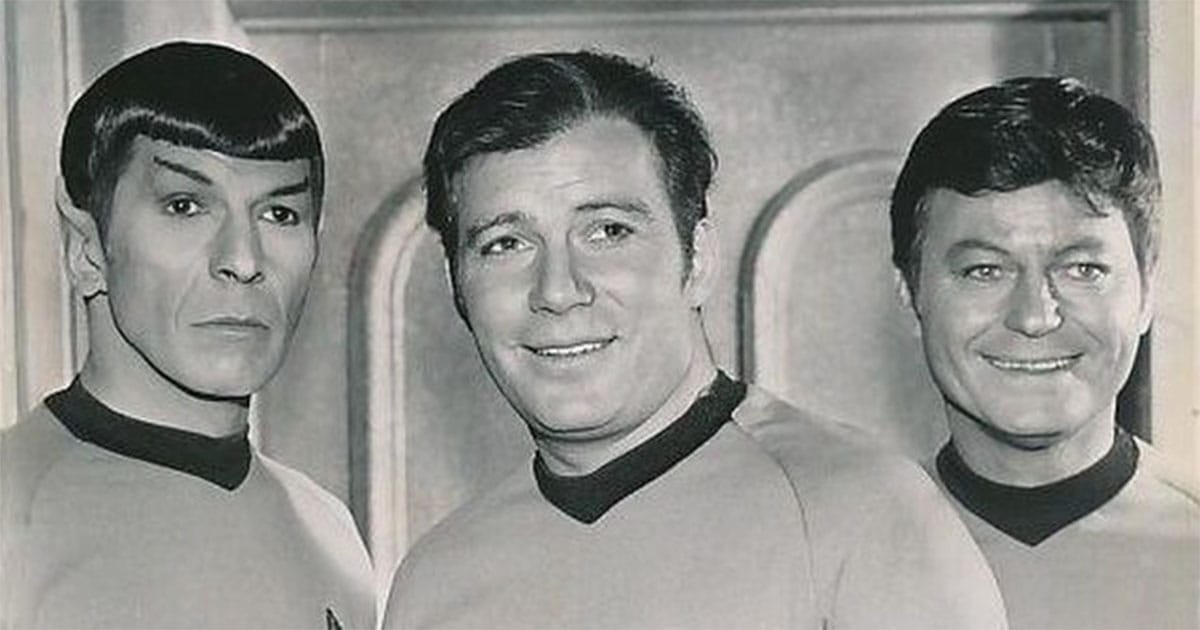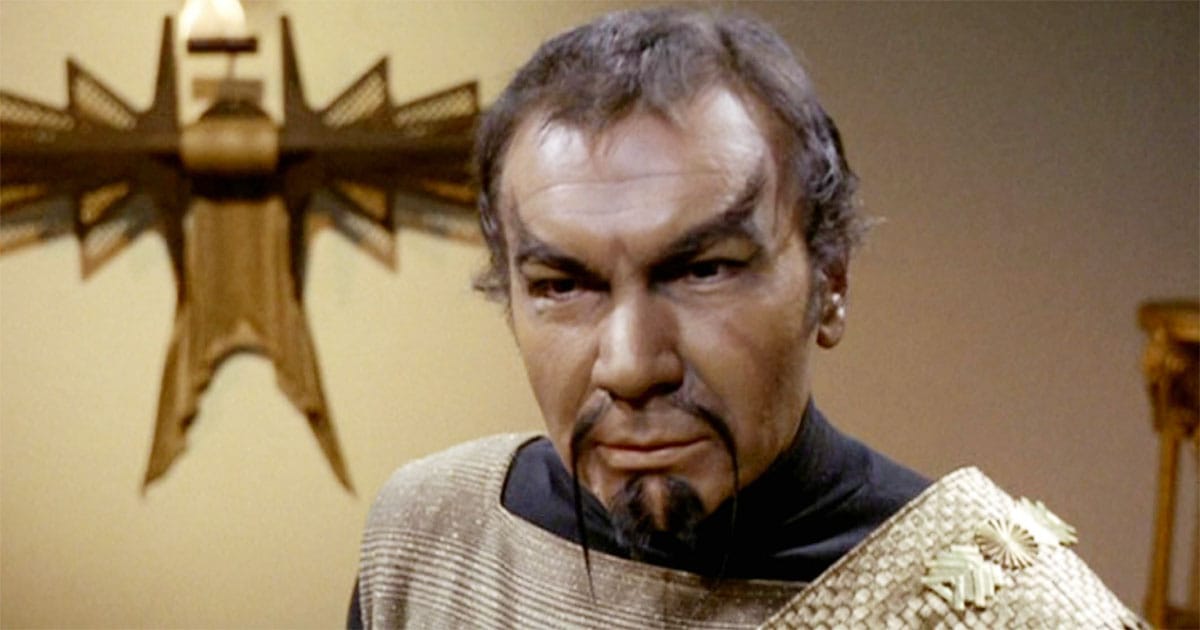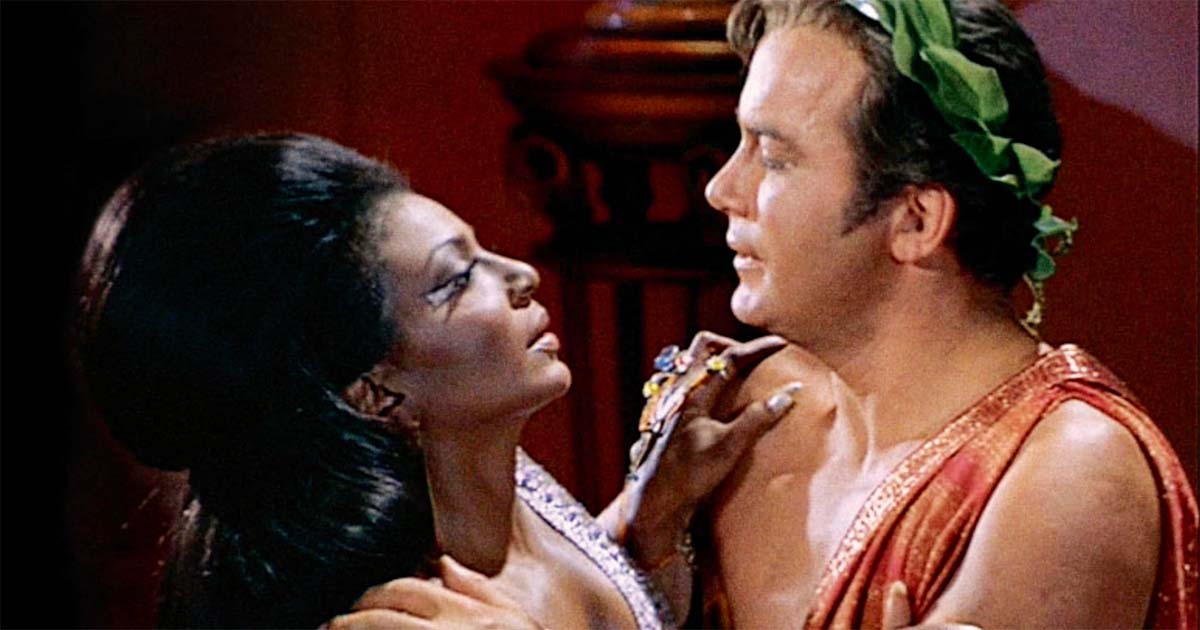The Influence of 1960s Culture on "Star Trek TOS"
"Star Trek: The Original Series" reflected 1960s tensions while offering hope for the future. It tackled Cold War fears, racial inequality, and moral dilemmas, inspiring unity and humanity's potential.

In the fall of 1966, "Star Trek: The Original Series" (TOS) embarked on its maiden voyage across television screens. Set against the backdrop of a tumultuous decade, this groundbreaking series blended futuristic storytelling with a reflection of contemporary challenges.
While its portrayal of advanced technology and interstellar exploration captivated audiences, its real genius lay in its connection to the cultural upheavals of the 1960s.
The 1960s were marked by profound societal change. The Cold War overshadowed politics, the Civil Rights Movement reshaped social norms, and the space race fueled dreams of a limitless future. "Star Trek" didn't just reflect these anxieties and aspirations—it transformed them.
Gene Roddenberry's vision of a united and optimistic humanity served as both a critique of current struggles and a bold blueprint for the future.
"Star Trek: The Original Series" became a mirror for its time, addressing Cold War tensions, the Civil Rights Movement, and moral dilemmas with the audacity to believe in a better world. Through these themes, the series remains as relevant today as it was over half a century ago.
The Cold War and Interstellar Diplomacy
The Cold War's simmering tension defined the 1960s. Two global superpowers, the United States and the Soviet Union, stood locked in ideological conflict. Their competition extended into nearly every arena, from military build-up to technological dominance, and the looming threat of nuclear war cast a shadow over the era. "Star Trek: The Original Series" mirrored this fraught landscape by crafting an interstellar Cold War between the United Federation of Planets and its adversaries, the Klingons and the Romulans.

The Federation embodied the values of the Western bloc, emphasizing diplomacy, exploration, and peaceful coexistence. Meanwhile, the militaristic and expansionist Klingons and Romulans echoed the Eastern bloc, with their authoritarian tendencies and willingness to provoke conflict. This tension was especially evident in episodes like "Balance of Terror," where the Federation's uneasy truce with the Romulans mirrored the delicate standoff between the United States and the Soviet Union. The episode's submarine-like battle, fought in the cold expanse of space, underscored the era's fears of silent, catastrophic warfare.
Yet, "Star Trek" offered more than a simple reflection of Cold War anxieties. It dared to imagine a future where diplomacy and understanding could prevail over violence. Episodes frequently showcased the Enterprise crew navigating delicate situations that required wit and restraint rather than brute force. For instance, "The Day of the Dove" explored themes of reconciliation, with the Federation and Klingons forced to overcome their hostilities when confronted by a common enemy.
The series also tackled the idea of mutually assured destruction, a concept central to Cold War geopolitics. The Federation's commitment to peaceful resolution often came at a cost, requiring them to outthink their enemies while avoiding war at all costs. This balance between strength and restraint mirrored the delicate tightrope walked by world leaders of the time.
Through its allegorical storytelling, "Star Trek: The Original Series" captured the existential fears of the Cold War while holding fast to a vision of hope. It suggested that humanity, despite its flaws, could rise above its divisions and chart a better course for the future. This idealism resonated with audiences, providing a counterpoint to the grim realities of the 1960s geopolitical landscape.
Roddenberry's Optimism
Gene Roddenberry envisioned "Star Trek: The Original Series" as more than just science fiction entertainment. He saw it as a vessel for hope, a future where humanity could transcend its flaws and work together for the greater good. His vision blended optimism with traditional values such as duty, courage, and moral clarity. These principles anchored the show's futuristic premise, making its bold ideas relatable and timeless.
Roddenberry described the series as a "Wagon Train to the Stars," borrowing from the Western genre's structure and ethos. Just as pioneers of the Old West ventured into uncharted territories, the crew of the USS Enterprise explored the vast frontier of space. This episodic framework allowed the show to tackle a wide range of moral dilemmas, each one grounded in enduring human values. Episodes like "The Corbomite Maneuver" underscored the importance of courage and trust, while "The Devil in the Dark" emphasized understanding and compassion over fear.
At its heart, Roddenberry's optimism hinged on the belief that human ingenuity and cooperation could solve even the most daunting challenges. The Enterprise crew, composed of individuals from many cultural and national backgrounds, symbolized this ideal. Their ability to work together harmoniously reflected Roddenberry's faith in humanity's potential to overcome divisions and achieve greatness. This vision stood in stark contrast to the divisiveness of the 1960s, offering a glimpse of what could be possible.
However, realizing this vision was not without challenges. Network executives frequently questioned the inclusion of controversial themes. Budget constraints also forced creative solutions. Roddenberry and his team navigated these obstacles with determination, using allegory and innovative storytelling to address complex issues. The limited special effects of the time only added to their resourcefulness, as they prioritized narrative substance over spectacle.
Roddenberry's portrayal of the "space frontier" was also deeply rooted in traditional values. Characters like Captain Kirk embodied leadership, decisiveness, and moral clarity—traits associated with the archetypal hero. With his logical mind and ethical deliberations, Spock represented reason and restraint, reminding viewers that strength must be tempered by wisdom. These characters offered not only entertainment but also a moral compass for audiences.
Episodes often posed difficult moral questions but never shied away from providing clear answers rooted in ethical principles. For example, in "A Taste of Armageddon," the crew confronts a society that wages sanitized, computer-simulated war. Kirk's ultimate decision to disrupt their system reflects a belief in the sanctity of human life, even if it comes with risk and discomfort.
Roddenberry's optimism did not ignore humanity's flaws but sought to show how they could be overcome. His faith in progress, anchored by traditional values, resonated with audiences in the 1960s and continues to inspire viewers today. By combining moral clarity with a hopeful vision, "Star Trek: The Original Series" reminded audiences that the present challenges could be solved by the best qualities of humanity.
The Civil Rights Movement and the Power of Representation
The Civil Rights Movement transformed the 1960s, confronting deeply ingrained racial stress. Against this backdrop, "Star Trek: The Original Series" broke new ground by presenting a vision of a unified humanity. At a time when segregation remained common, the show dared to depict a future where these divisions no longer existed.
Lieutenant Nyota Uhura, portrayed by Nichelle Nichols, stood as a symbol of this vision. A highly competent communications officer, Uhura played a vital role on the USS Enterprise. Her presence on the bridge, alongside white, Asian, and alien crew members, embodied Roddenberry's belief in a future where people would work together regardless of race or background. For many viewers, seeing an African-American woman in such a prominent position marked a turning point in how television could represent equality and aspiration.
"Star Trek" also challenged social norms through its storytelling. The episode "Plato's Stepchildren" featured what is widely regarded as the first interracial kiss on American television between Captain Kirk and Lieutenant Uhura. While the scene faced pushback from network executives and Southern affiliates, it ultimately aired, sparking discussions about representation. This moment went beyond entertainment; it reflected the aspirations of the Civil Rights Movement by imagining a world where race no longer created barriers.

Nichelle Nichols herself recognized the significance of her role. When Nichols considered leaving the series, Dr. Martin Luther King Jr. famously persuaded her to stay, explaining how vital her presence on television was for the Civil Rights Movement. Nichols went on to use her platform to advocate for diversity in STEM fields, working with NASA to recruit women and minorities into the space program. Her influence extended far beyond the screen, making her a real-world agent of change.
Lieutenant Hikaru Sulu, played by George Takei, offered representation for Asian Americans during a time when such portrayals were rare. His role on the Enterprise reinforced the idea that people of all backgrounds could contribute equally to humanity's future.
Ensign Pavel Chekov, a Russian crew member introduced at the height of the Cold War, symbolized the potential for cooperation even among ideological adversaries.
Through its cast and groundbreaking moments, "Star Trek: The Original Series" offered more than escapist entertainment. It provided a vision of hope and progress during a decade of struggle. The series reminded viewers that these ideals were achievable—not just in fiction, but in reality.
Addressing the Issues of the Day
"Star Trek: The Original Series" confronted the pressing social and political issues of the 1960s through the lens of science fiction. The series embedded complex themes in futuristic narratives, offering commentary on war, prejudice, and the ethical dilemmas surrounding technology. This approach allowed the show to address controversial topics while avoiding the censorship and resistance that often accompanied direct critiques.
Episodes like "A Private Little War" reflected the contentious debates surrounding the Vietnam War. In this episode, Captain Kirk grapples with the morality of arming one faction of a developing planet to maintain a balance of power. The storyline mirrored U.S. policies in Southeast Asia and exposed the moral ambiguities of intervention. It raised questions about whether such actions served the greater good or simply perpetuated cycles of violence.
Racism also became a focal point of the series. The episode "Let That Be Your Last Battlefield" presented an alien race divided into two factions based on the color of their skin. One side was black on the left and white on the right, while the other side was reversed. This stark and exaggerated allegory highlighted the absurdity of racial prejudice and its destructive consequences. By framing these issues in a fictional context, "Star Trek" encouraged viewers to examine their own biases without feeling directly accused.
The series also reflected the countercultural movements of the time. "The Way to Eden" depicted a group of spacefaring hippies seeking a utopian planet, only to be undone by their own naivety and rejection of practical realities. While the episode has faced criticism for its portrayal of the counterculture, it engaged with broader questions about rebellion, idealism, and the pursuit of a better world.
Concerns about unchecked technological advancement found their way into the series as well. In "The Ultimate Computer," a highly advanced AI nearly replaces the crew of the Enterprise, threatening human agency. This theme resonated in an era of rapid technological progress and growing fears of automation.
In spite of its engagement with heavy topics, the series maintained a fundamentally hopeful outlook. These challenges were presented as obstacles that humanity could overcome rather than as insurmountable barriers. The crew of the Enterprise approached these dilemmas with courage and moral clarity. Their actions demonstrated that humanity could learn from its mistakes and build a better future.
Through its blend of allegory and storytelling, "Star Trek: The Original Series" became more than a science fiction adventure. The series acted as a cultural mirror that challenged audiences to confront the complexities of their world while offering a vision of hope. It reinforced its core belief that humanity's potential for growth and unity could rise above even the most significant challenges.
Star Trek's Legacy as a Beacon of Hope
"Star Trek: The Original Series" emerged from the upheaval of the 1960s as both a reflection of its time and a vision for a better future.
As mentioned above, the series explored Cold War tensions, the Civil Rights Movement, and the dilemmas posed by war, prejudice, and technology. Yet, it did more than mirror the anxieties of its era. It offered a blueprint for humanity's potential, rooted in optimism and timeless values.
The series suggested that even in a world fractured by ideological conflicts, racism, and technological fears, humanity could overcome its flaws through courage, cooperation, and moral clarity. The crew of the USS Enterprise embodied this ideal. They worked together, not as representatives of separate factions, but as a united force striving for understanding and exploration. Through this lens, "Star Trek" presented its audience with a challenge: to look beyond the divisions of the present and embrace a shared vision for the future.
The show's enduring legacy extends beyond its influence on science fiction. Its depiction of a future where diplomacy triumphs over war, diversity fosters strength, and reason tempers ambition continues to inspire audiences. "Star Trek" demonstrated that hope is not naive but necessary, especially during times of uncertainty.
In a turbulent decade, "Star Trek: The Original Series" offered more than escapism. It stood as a reminder that humanity's greatest strength lies in its ability to grow, adapt, and strive for a better tomorrow. Even today, more than fifty years after its debut, the series remains a beacon of hope, urging us to boldly go where no one has gone before.

